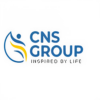Background
The UKAid-funded Shule Bora programme delivers technical assistance to government-led work in education. It aims to improve the quality of pre-primary and primary schools in Tanzania. It is a seven-year programme (2021-2027) managed by Cambridge Education and operates within a consortium that includes Plan International, Action on Disability and Development (ADD), and the International Rescue Committee (IRC) as core partners, alongside several associate partners.
The programme will:
- Work with Ministry of Education, Science and Technology (MOEST) and the President’s Office Regional Administration and Local Government (PO-RALG) to test, adapt and implement at scale quality, gender-transformative, disability-inclusive and safe to learn education approaches in 9 regions, generating learning and evidence on how to achieve these outcomes affordably and at scale.
- Support the Government of Tanzania with the timely and effective implementation of the Payment for Results (PforR) mechanism through technical assistance and capacity building, with a strong focus on data verification, financial management and risk management. Support lesson learning processes from PforR so that these can be embedded into government processes and shared with development partners and other key stakeholders. Ensure that lessons and best practice from (1) are used to inform PforR mechanism. The Disbursement Linked Indicator (DLI) 1.5: Enabling Schools to become more Inclusive underpins all Shule Bora Inclusion and Safety work.
- Manage and coordinate programme activities, with a strong focus on (i) ensuring a high quality programme, financial and risk management oversight, (ii) working with an independent Learning and Evidence (L&E) provider on establishing regular, rigorous and community-driven monitoring and evaluation activities, and (iii) developing and implementing a strategy for effective communication of Shule Bora objectives, results, and lessons learned to a range of target audiences.
The Inclusive and Safe Schools Lead is part of the Core technical team of Shule Bora, S/he will be line managed by the Team Leader (TL) and will lead the sustainable system strengthening work related to school access and inclusion (to mitigate physical, social, financial and pedagogic barriers to inclusion), school-based safety, family and community engagement, climate and environment and manage the technical team working in this area. S/he will provide strategic leadership, quality assurance and coordination across inclusion, safety and climate and environment working closely and coordinating with other technical leads. S/he will closely work with the Team Leader (TL), Deputy Team Leader (DTL), government and key national stakeholders to ensure a coherent, coordinated approach defined by strong ownership. S/he will ensure sustainable system strengthening is at the centre of the strategic approach and a core dimension of how the team is working. S/he will ensure the inclusion, safety and climate and environment strategy, plans, resources and interventions follow the Shule Bora operating principles, supporting and co-defining government-led education sector reform, and are focused on sustainable strengthening of the education system. The post-holder will be based in Dodoma. S/he will also work closely with the TL and others to communicate Shule Bora’s work and results to internal and external stakeholders. The role is initially for 2 years with the option to extend for an additional year.
Skills and Knowledge
- Excellent understanding of what drives exclusion of marginalised and vulnerable children from education in Tanzania, including how to analyse social and power dynamics that lead to exclusion.
- Good understanding of sustainable system strengthening approaches and requirements to drive inclusion priorities.
- Good technical knowledge in governance.
- Understanding of inclusion and/or climate and environment priorities, strategies, stakeholders, policies and interventions in Tanzania.
- Ability to prioritise complex and varied work and work under pressure.
- Ability to work in a collaborative team setting.
- Ability to work with government and adapt to changing priorities.
- Proficient in using MS packages, particularly Word, Excel and PowerPoint.
- Strong presentation skills and ability to represent the programme to a variety of audiences including government representatives, the donor, academic institutions, civil society, community representatives, and others as required.
- Strong organisational skills, reliability, and adherence to ethical standards.
- Excellent verbal and written communication skills, including advanced report writing skills
- Strong verbal and written communication skills in English and Kiswahili required.
- Passionate about making a difference and championing girls’ right to education, willing to travel in country and dynamic.
- Capacity to manage financial information and design and monitor project budgets according to Shule Bora procedures.
Experience
- Experience in social development and inclusion.
- Experience in governance and system strengthening.
- Proven ability to lead complex projects and teams in relation to Inclusion, Safety and/or Climate and Environment.
- Experience working on large, complex, donor-funded programmes. Preferably DFID/FCDO-funded contracts.
- Experience working with senior stakeholders and influence change.
- Experience in technical assistance/advisory.
- Experience and expertise in developing and implementing safety and inclusion focused education initiatives/programmes.
- Experience in implementing community-level interventions to create space for changes and supporting communities engagement and/ or acting as a technical advisor to such programmes.
- Experience of working in Tanzania essential and a strong understanding of context and contextual challenges faced by communities in the country.
- Desirable to have experience of climate and environment programmes in the education sector.
- Managing and leading teams of technical specialists.
- Extensive experience with stakeholder engagement, including international donors and local government, and the ability to develop partnerships with local government, private sector, and the wider international community.
Qualification
- Master’s degree in a relevant field, such as Social development, Governance, Development Studies, Sociology, Gender and disability, Inclusion, Climate and Environment, Education.
- A minimum of 8 years’ experience in leading and strategic positions in Tanzania and a strong understanding of context and contextual challenges faced by communities in the country and in strengthening local systems.
